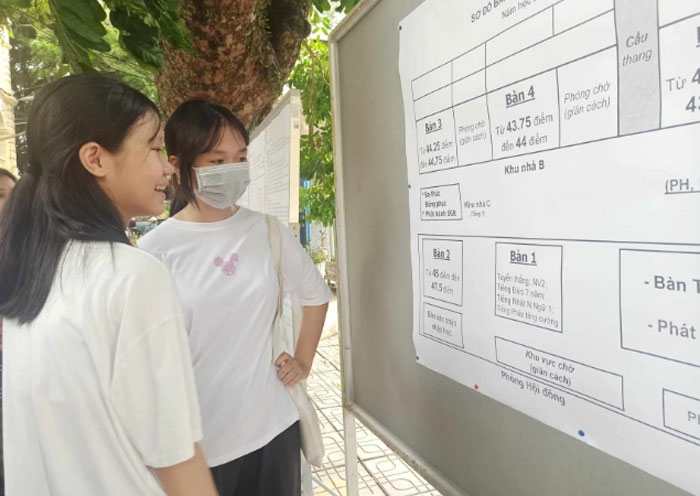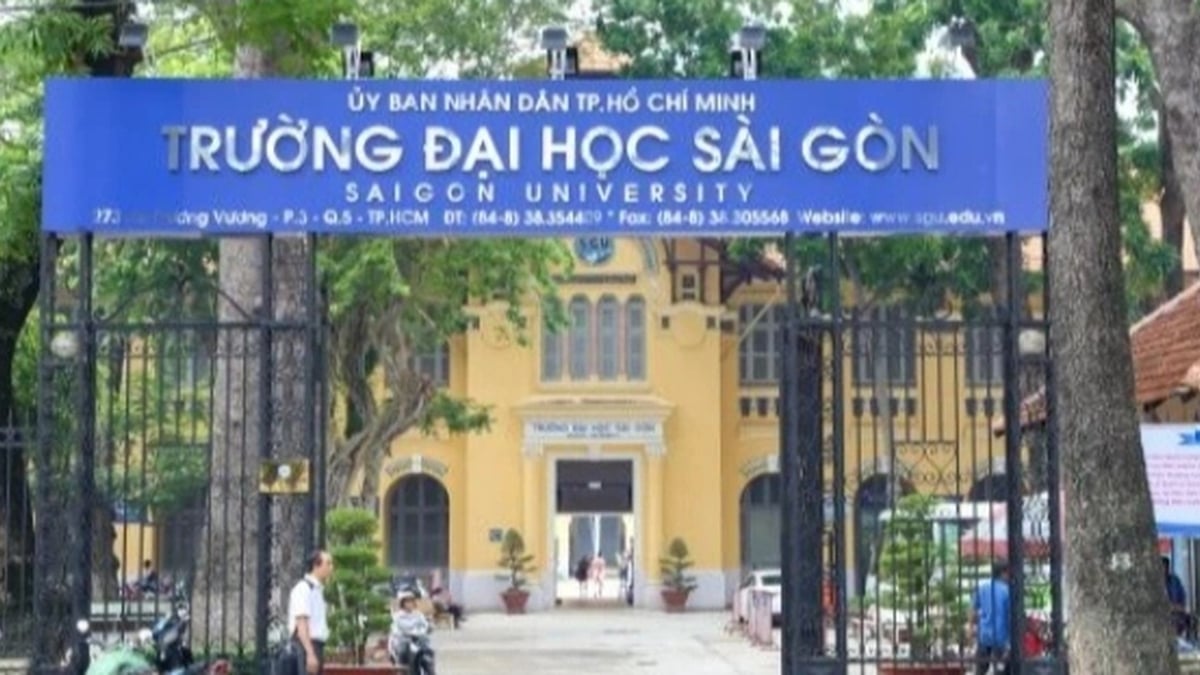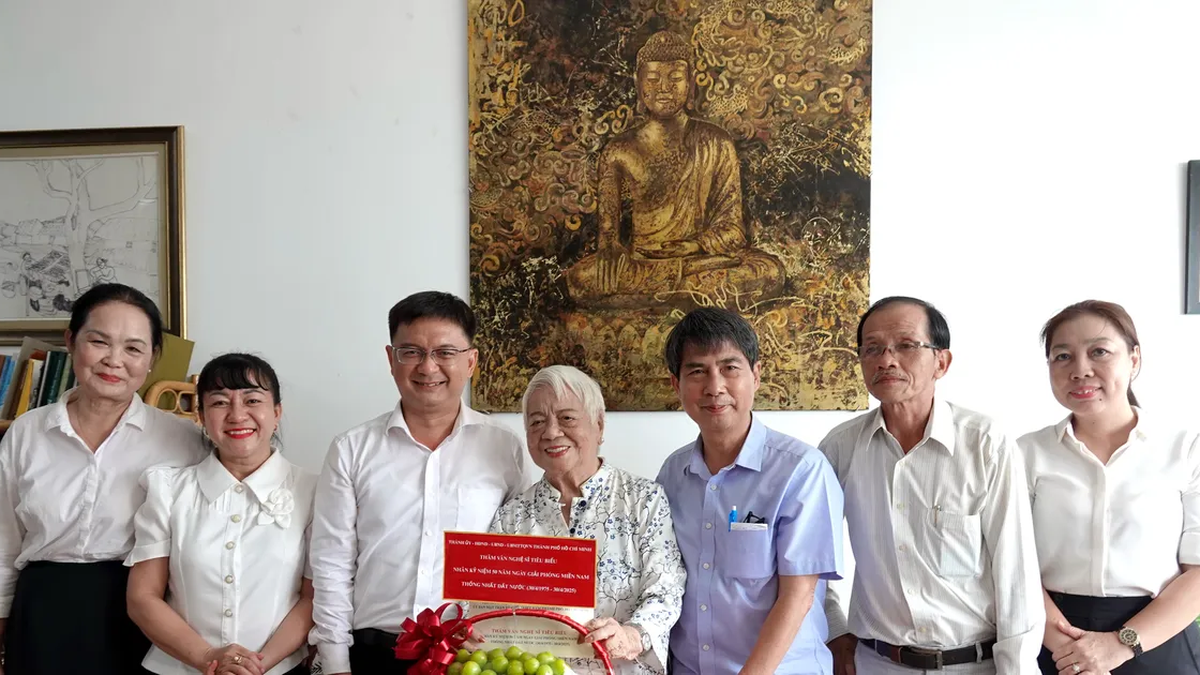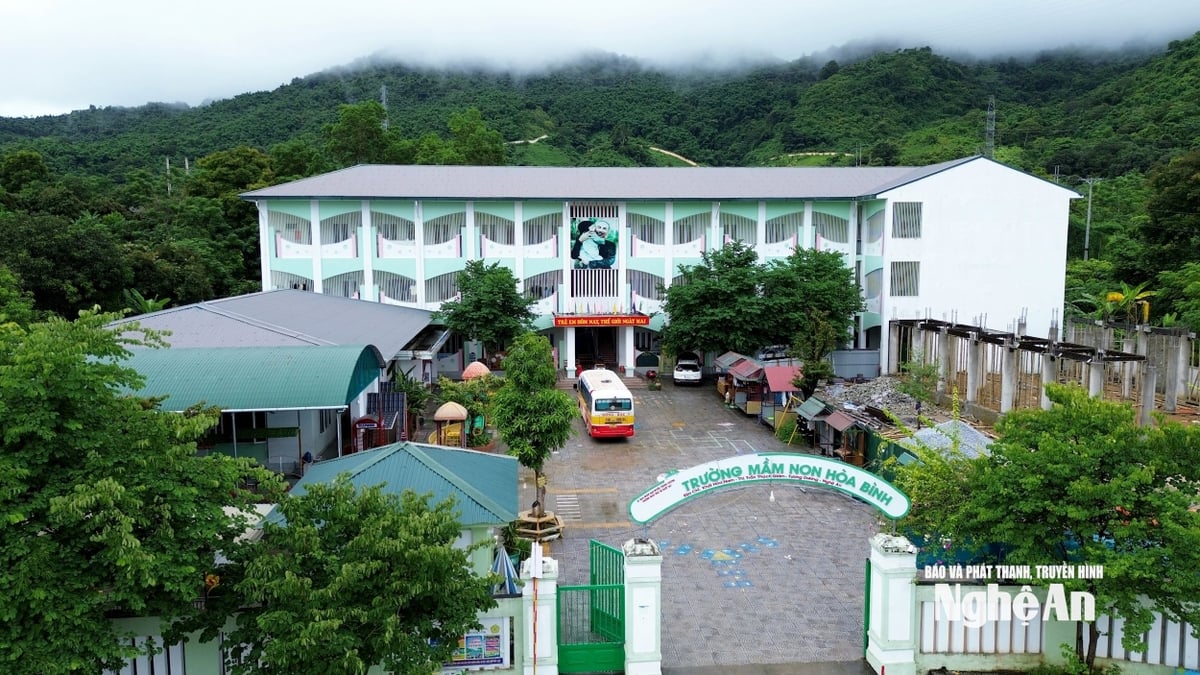“Encouraging schools to organize separate classes for each selected subject and selected study topic; flexibly arranging the number of students in each class and building a suitable timetable to best meet the wishes of students” is one of the guidelines for implementing the new school year tasks for high school education that has just been issued by the Ministry of Education and Training (MOET). However, school principals believe that this is very difficult to implement, even impossible.
The Ministry of Education and Training's policy is correct, if implemented it will be very good for students and this is also the desire of schools, but Mr. Hoang Minh, Principal of Phu Bai High School (Thua Thien Hue) said that it is very difficult to implement because of lack of facilities and staff. This is also the opinion of Mr. Tran Tuan Khanh, Deputy Director of the Department of Education and Training of An Giang province. According to Mr. Khanh, arranging classes by subject will increase the number of classes. To implement the organization of classes as encouraged by the Ministry of Education and Training, schools need to have a ratio of 0.8 rooms/class or more.
 |
| Grade 10 students at Viet Duc High School ( Hanoi ) prepare to enroll and listen to advice on choosing their subject combinations. |
Meanwhile, pressure on high school classrooms is a big problem in localities, especially in cities. Mr. Doan Minh Chau, Principal of Nguyen Thi Minh Khai High School (Hanoi) said: “My school originally had only 36 classes, but now it has to increase to 45 classes to meet the needs of students. The school is also short of 20 teachers. Organizing classes by subject, students will have more flexibility in choosing subjects instead of having to choose by combination as at present, but it requires more classrooms.”
The fact that students only want to choose a few subjects and very few choose a few subjects is a reality in schools from the 2022-2023 school year, when the new general education program begins to be implemented and students are allowed to choose subjects. At schools with a bias towards group D such as Viet Duc High School (Hanoi), Ms. Nguyen Boi Quynh, the school's principal, said that students tend to choose social subjects. Meanwhile, at schools with a bias towards groups A and B such as Quang Xuong 1 High School (Thanh Hoa), students tend to choose natural science subjects.
Mr. Le Van Dy, Principal of Quang Xuong 1 High School, said that when building the combination, the school had to calculate to combine subjects that students tend to choose less with other subjects; advise and orient students to balance the number of students between the combinations. Mr. Dy frankly said: "This may make students unhappy because they will have to study subjects that they do not really want to study, but the school also has to ensure human resources, cannot let some teachers have to teach overtime, and some teachers have to sit idle. The school does not have the budget to pay teachers more, and even less the right to let teachers quit just because students do not choose to study that subject."
From a practical perspective, school principals believe that the Ministry of Education and Training's encouragement is reasonable; however, to implement this policy, high schools need the attention and investment of competent authorities. Currently, perhaps only non-public schools, where the number of students is small, the school can take the initiative in facilities and teaching staff, and is flexible in salary payment, can implement this; for public schools, this is very difficult.
Article and photos: THAI BINH
*Please visit the Science Education section to see related news and articles.
Source




































































































Comment (0)